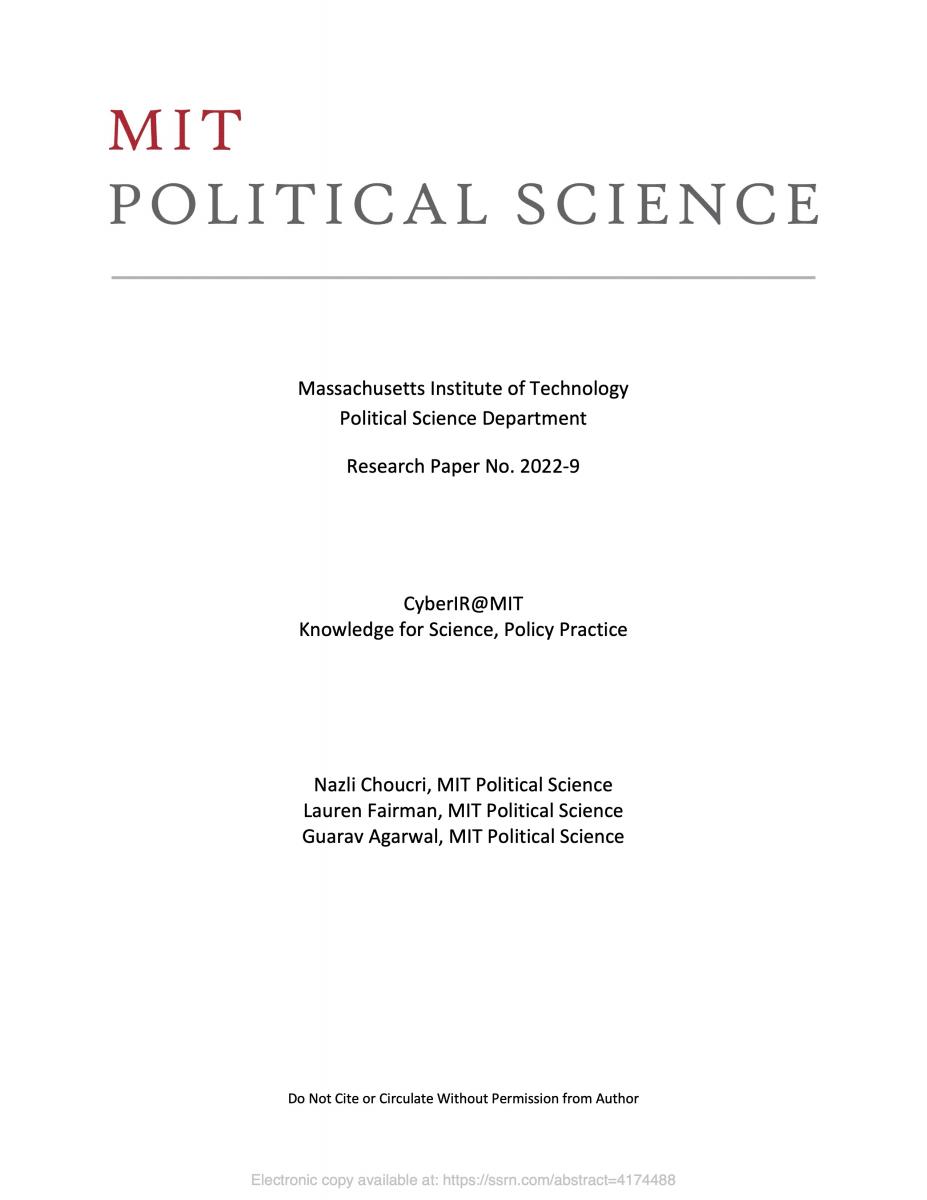CyberIR@MIT is a dynamic, interactive ontology-based knowledge
system focused on the evolving, diverse & complex interconnections
of cyberspace & international relations.
Almost everyone recognizes that cyberspace is a fact of daily life. Given its ubiquity, scale, and scope, cyberspace – including the Internet, the billions of computers it connects, its management, and the experience it enables – has become a central feature of the world we live in and has created a new reality for almost everyone and everywhere.
At the same time, information and communication systems – the foundations of all human societies and social interactions – are accorded rather limited attention in all major theories of international relations. Despite the centrality of all forms of information exchange – in all contexts and cultures, conditions or situations – content of communications, conduits, and forms of connectivity remain more marginal than is appropriate in world politics or in international relations more broadly defined.
Until recently cyberspace was considered largely a matter of low politics, a term used to denote background conditions and routine decisions and processes. By contrast, high politics concern national security, core institutions, and decision systems that are critical to the state, its interests and underlying values.
If the cumulative effects of normal activity shift the established dynamics of interaction, then the seemingly routine becomes increasingly politicized. Cyberspace is now a matter of high politics. We see many incidents of power and politics, conflict and competition, violence and war – all central features of world politics – increasingly manifested via cyber venues.
In addition, the fundamental differences between the characteristics of cyberspace (with the Internet at its core) and the traditional features of international relations often make it difficult to track changes in each domain individually, and almost impossible to do so at their intersection.
There is a limited understanding of how cyberspace influences international relations and how power and politics in international relations influence the structure, process, and management of cyberspace. Dominant assumptions of the 20th century politics and policy are severely undermined by the 21st century and the cyber age with its dynamic and changing configuration. The knowledge gap is profound.
There are excellent maps and visual materials for international relations and for different features of cyberspace; missing, however, is a combined view so essential for understanding today’s realities and anticipating future directions. Without a “map” to navigate its joint international relations and cyber features and their interdependence, a viable theory thereof, and mechanisms for tracking potential threats, it is unlikely that we can fully understand what it is, let alone identify threat points and their underlying trajectories.



